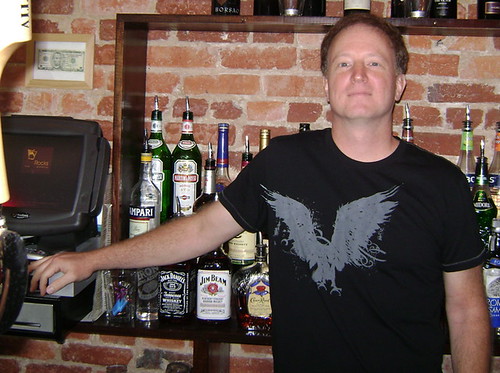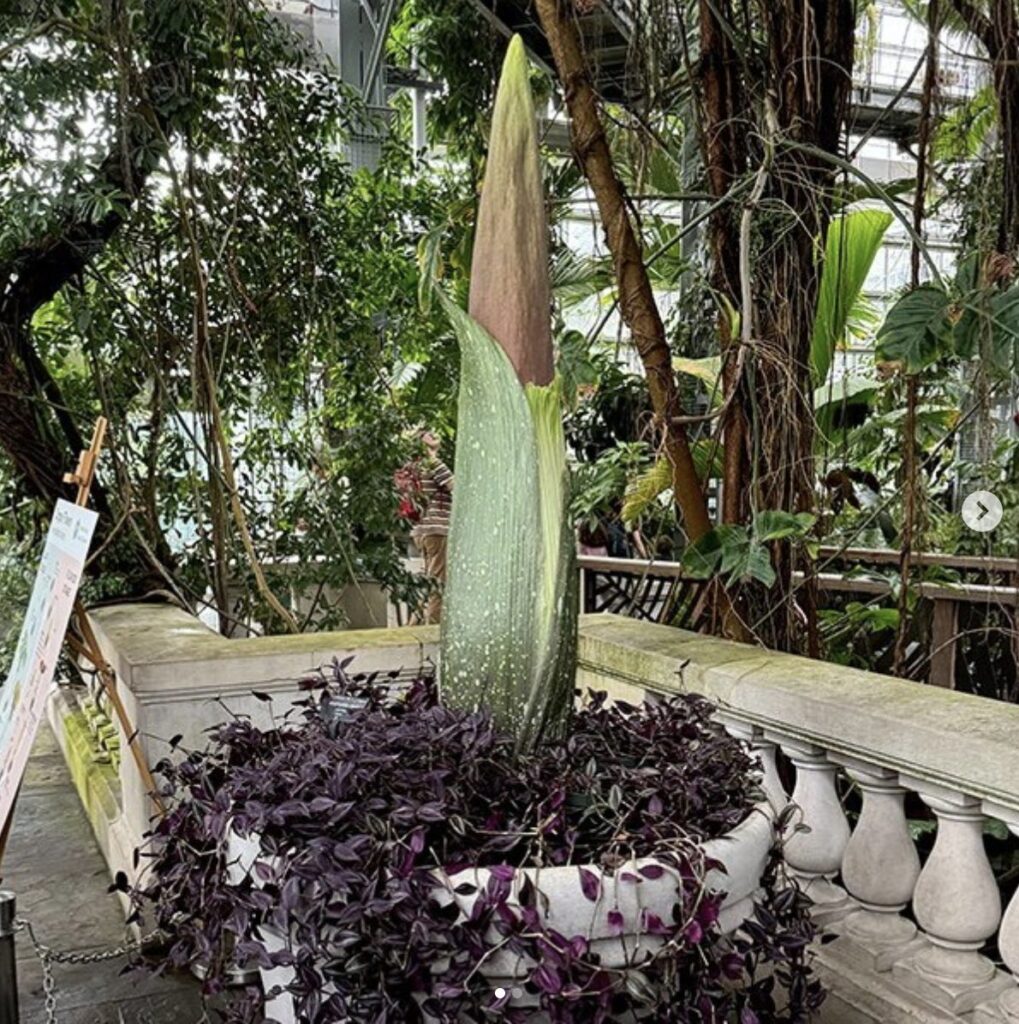rr2, originally uploaded by Prince of Petworth.
It’s hard to believe it but Red Rocks is about to turn one year old this weekend. To celebrate the milestone Julian sits down with owner James O’Brien and discusses the changes to the restaurant, 11th Street and the neighborhood in general. Congrats Red Rocks!
Red Rocks is kind of like a friend’s house – its around the corner, its warm and inviting, and no matter who is at the door when you step in, they’re always glad to see you. Red Rocks was designed for the people by the people, and you can confirm that warm feeling with anyone, from the patron sipping a glass of wine in one of the brick-framed windows to James O’Brien, the owner who, like his business, is very warm and inviting. The neighborhood pizzeria celebrates its year anniversary this coming weekend, and with a happy hour from open to close and specials that’ll turn your salivary glands on like a Pavlovian dog, you’ll be ready to move in.
I sat down with Mr. O’Brien today to talk about his one-year anniversary – the things he’s learned, the things he regrets (or doesn’t!), and about what makes Red Rocks such a hit. I had fourteen questions to ask, but cut it down to the twelve best. So without further ado:
Julian: For those readers who aren’t familiar with your restaurant, can you tell us a bit about Red Rocks (concept/conception)?
James O’Brien: Well, it is a neighborhood restaurant, definitely based on providing the best possible pizza experience. Many people don’t know about the pizza process, or they like what they like, and that’s it. Here at Red Rocks, we’re all about traditional Neapolitan pizzas. We use the best flour, which is caputo flour, and the best tomatoes – we use only fresh mozzarella, and for our margarita pizzas fresh buffalo mozzarella. Lots of people get it mixed up and put fresh mozzarella on margarita pizzas. The oven is also fired between eight-hundred and nine-hundred degrees. I get people in here from Italy who say they can only have our pizza. On pizza.com, we have people who say that we’re the second best pizza they’ve ever had! Unfortunately, we have people who grew up eating a certain kind of pizza. They equate pizza with lots of toppings or overflowing with sauce or cheese, but that’s not the best quality pizza. Neapolitan pizza is a balance between the taste of the dough, the sauce, and the cheese. The point is not to overwhelm people. Every good pizza maker needs to know that its quality over quantity.
Julian: What makes you stand apart from other restaurants or pizzerias?
James: To reiterate it, what we do differently is we use the top top ingredients – top flour, top tomatoes, top mozzarella. Before I was really doing this full time and really tasting pizzas all the time, I would eat pizza and not really taste the differences. I don’t think you can taste the difference, but now that I’m in this business, I can really taste the quality of the tomatoes, the temperature of the oven – the quality of the flour. The taste of a brick-oven pizza can’t be recreated in a deck oven. You cannot recreate that pizza experience. The brick oven is a key element to the whole thing. The difference is immense. As far as atmosphere goes, its all very subjective, because people feel comfortable in different places. We’re trying to make this as comfortable spot as possible, with friendly service, and good food. Interview continues after the jump.
Julian: What is it that you do to attract new customers, and keep the ones you already have?
James: To keep the regulars, we believe in providing a great product, great food and great service so that they always feel comfortable and happy. To attract new customers, we are trying things out with flyers, mailers and by word of mouth. I noticed that when we first opened what a credible blogging presence there was in Columbia Heights and Petworth. People here really keep in touch with what’s going on in their neighborhood. The notoriety of what we were doing when we were opening got around fairly quickly. So that’s pretty much it – we rely on positive reviews by word of mouth, positive experiences, and the people who keep in touch with what’s going on in their neighborhood. We’re not doing any major advertising or anything like that. We’re … a neighborhood restaurant. People who want to eat downtown, we’re not going to be on their radar. I think that we have a good base here to make things successful for everyone. Its certainly a bit of a transient city, and neighborhood, so we have to keep reaching out to people because people come and go, but as long as we keep the momentum for the people who keep coming in, mailers and good feedback will help to draw them in.
Julian: What challenges has the restaurant faced that you did not forsee?
James: It’s the day to day duties – a lot of things can work better in theory – you can have a great staff, a great product, and a great atmosphere, but when it’s a day to day thing, there are always different variables you have to look out for. I mean, we had a power outage the other day. We were filled with people, and how do you deal with that? We have a brick oven to make food, but we had a POS system that didn’t work. We had to do things the old fashioned way. Its always things like, how do you get three servers to do the work of four, or two pizza workers do to the work of three? You can always be working with a great theory, but you don’t have perfect days. I think that’s where the challenge really comes from.
Julian: What changes have you witnessed in the neighborhood since you’ve opened last year?
James: Well, certainly, the restaurant is going in across the street. The developments on Georgia Avenue are really coming together. The whole DCUSA thing has come up within the year. What I did notice is that when we first came in I didn’t know what to expect, but I had a lot of friends in this neighborhood who I would visit to scope things out. Unless you work in the area in a public place, you don’t really have a sense of what things are like. I’ve been surprised at how communal people are here, how excited they are to meet their neighbors and be a part of Columbia Heights. The neighbors have really surprised me – they love to support small restaurants, and the people have really impressed me with their friendliness.
Julian: What are some of the pros and cons to being a new restaurant in an “up and coming” community like Columbia Heights?
James: I think [the pros] are that people really do rally around a place that has just opened up, and they have a sense of community and ownership over it. The people are really supportive, loyal and its very conducive to a warm atmosphere. People are friendly as long as you have friendly service, a great interaction between patrons and staff. I’m using this as an example of an opposite, but consider maybe a tourist attraction in which a group of people come in one time, and then they leave and never return. The people are so transient in places like that, but they’re not like that here. The cons are that we’re a little off the beaten path, so people don’t really like going out of their way to come see us. Also, if we’re having bad weather, then people don’t come out, and that’s hard, when you don’t have a strong DC base outside of the neighborhood. But it’s definitely my preference to be in a local community like this, and I would take this kind of location a hundred times over a busy strip in a downtown location. Its just not my personal preference to be that anonymous big restaurant.
Julian: How has business changed over the year?
James: It has steadily grown. Its improved because I think what we’ve done [here at Red Rocks] has improved, service and product wise. I think we’ve gotten more and more positive feedback. As far as how its changed, I can’t say there have been strange demographics of how people have shifted. We get mostly neighborhood people, but we definitely get other people from other neighborhoods who come in to see what we’re doing – people from Capitol Hill, Logan Circle. For the most part, it’s the neighborhood people who keep the business rising.
Julian: After one year, what would you do differently? Any regrets?
James: Well, early on, we had a bit of a problem with a lack of refridgeration. Also, when we first opened, it was difficult to deal with the reception – we had lines out the door, and a full house. Trying to prepare for that was hard because everything is working in theory: “You’re a good server, a good bartender, and a good pizza maker” – but once you put that into action, you have to see how it all works together. I wish we had done a little more of a soft opening to work out the kinks, but it all worked out. The building itself has come with multiple challenges, with the kitchen being below and servers having to go up and down stairs to get people food. I can’t say it’s a regret, but its something I do notice. There are obstacles to overcome.
Julian: With Columbia Heights dependent on positive influences (like restaurants and retail) to revive the neighborhood, to what extent are other restaurants competition, and to what extent are they contributions?
James: At this point, the fact that there are so few restaurants in Columbia Heights makes any new restaurants contributions. As far as other businesses go, I don’t see them as competition – this restaurant going in across the street is nothing but a contribution. Its going to bring safety, its going to make the neighborhood more of a destination. I look at it as positive. Now, if another brick oven restaurant went in across the street, I might have a different answer [laughs].
Julian: Considering all the changes happening in the neighborhood, how do you see the future of 11th street?
James: I see it growing, because I see so many people involved with its development. There are a lot of people in the neighborhood who want to see the 11th street corridor develop. There doesn’t seem to be any dissipation of enthusiasm for it. It is commercially its own street. It has a great neighborhood feel, and we’re all kind of building on each other’s success. I saw what was happening at Wonderland and I thought, “that would be a great place for a pizza place.” The community is supportive, and the neighborhood politics have been supportive. It has been, at least for me, and my establishment, a very positive experience. Other entrepreneurs will agree. To have that combination of factors is welcoming to a new businesses. That’s really the make or break of why places will fry. As long as the right businesses come in, I think it could grow.
Julian: Do you have any advice to people who are interested in starting businesses in this area – some knowledge you’d wish you’d known when you first started?
James: Certainly do your research – make sure there is a market for your product, which can be anything from government databases of graphics to literally walking around and asking people on the street: “Would you like to see this kind of place to come in here?” You should see if people are generally receptive to your product. Get to know the local political scene to see if there are any problems having to do with permits and licensing or whatnot. Probably most important is to have the kind of perseverance that can allow for flexibility and for problem solving along the way. I think people don’t realize how much red tape there is involved with opening a business and how much you have to prepare for any sort of scenario – its all part of the process. If you really believe in what you’re doing, then know you have to do what it takes to get it done. People are overwhelmed with the worst-case scenarios running around their head. You have to have faith in yourself and your product to make it happen.
Julian: Are there any changes in the future, whether it be on the menu, or events, or anything of that nature? What can Red Rocks patrons look forward to?
James: In general, we have summer specials going on right now. We’ve added four new pizzas – a four-cheese pizza, a pineapple pizza, a sun-dried tomato pizza. We’ll also have beer summer specials. And this weekend, we’ll be celebrating our one year anniversary starting on Friday, with happy hour all day, and a special with our number one pizza – 6.50 for pepperonis!
Recent Stories
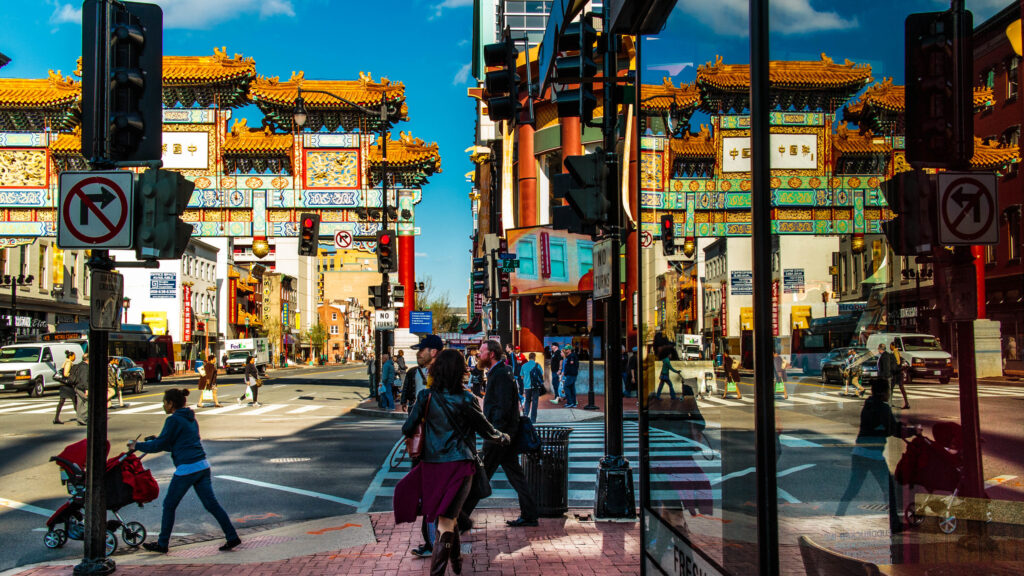
Photo by Clif Burns Ed. Note: If this was you, please email [email protected] so I can put you in touch with OP. “Dear PoPville, Hey – you stopped me while…
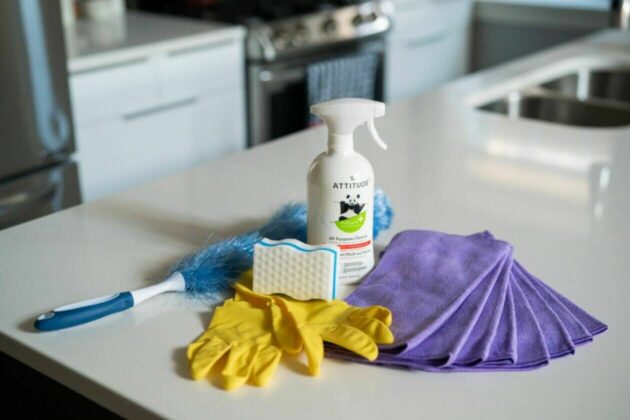
Unlike our competitors, Well-Paid Maids doesn’t clean your home with harsh chemicals. Instead, we handpick cleaning products rated “safest” by the Environmental Working Group, the leading rating organization regarding product safety.
The reason is threefold.
First, using safe cleaning products ensures toxic chemicals won’t leak into waterways or harm wildlife if disposed of improperly.
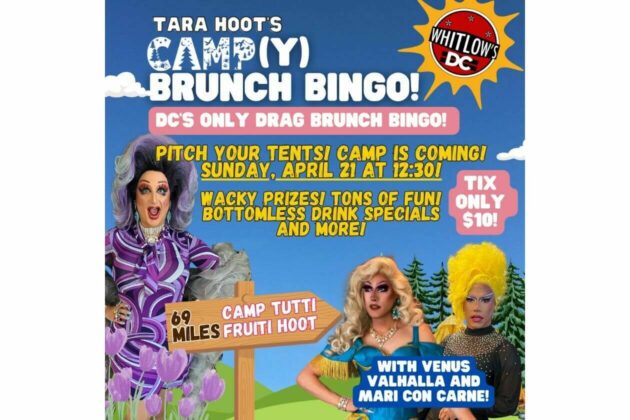
Looking for something campy, ridiculous and totally fun!? Then pitch your tents and grab your pokers and come to DC’s ONLY Drag Brunch Bingo hosted by Tara Hoot at Whitlow’s! Tickets are only $10 and you can add bottomless drinks and tasty entrees. This month we’re featuring performances by the amazing Venus Valhalla and Mari Con Carne!
Get your tickets and come celebrate the fact that the rapture didn’t happen during the eclipse, darlings! We can’t wait to see you on Sunday, April 21 at 12:30!
Frank’s Favorites
Come celebrate and bid farewell to Frank Albinder in his final concert as Music Director of the Washington Men’s Camerata featuring a special program of his most cherished pieces for men’s chorus with works by Ron Jeffers, Peter Schickele, Amy
Cinco de Mayo Weekend @ Bryant Street Market
SAVE THE DATE for Northeast DC’s favorite Cinco de Mayo celebration at Bryant Street NE and Bryant Street Market!
Cinco de Mayo Weekend Line up:
Friday, May 3:


